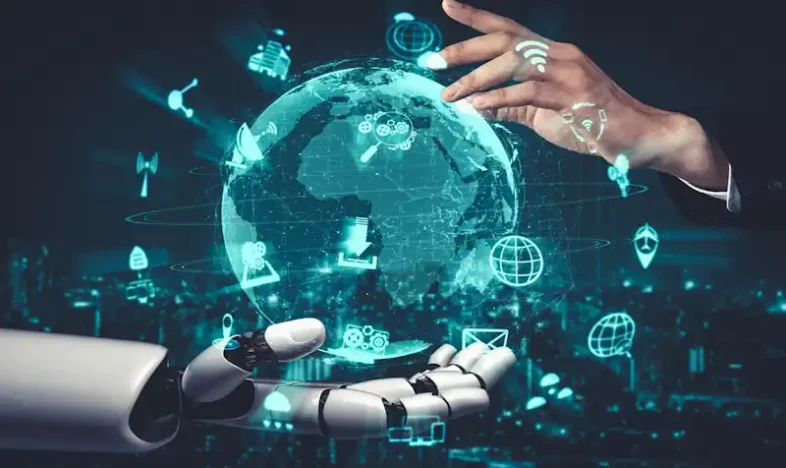In an era dominated by the pervasive influence of Artificial Intelligence (AI), it is imperative that we proceed on the path of progress with utmost caution. As we bear witness to the rapid advancements in this technology, it becomes increasingly vital to ensure that innovation aligns harmoniously with our core values, respects human rights, and fosters international cooperation.
This article delves into the multifaceted nature of AI, exploring its vast potential and the challenges it presents. Above all, it emphasizes the pressing need for responsible governance and accountability to shape a future where AI becomes a powerful tool for progress, connectivity, and sustainable development.
Table of Contents
International Cooperation Needed
Governments, organizations, and key stakeholders across the globe are awakening to the significance of establishing clear guidelines and frameworks for the development of AI. The growing consensus on the necessity of international cooperation is exemplified by the call for a new United Nations entity to govern AI. These governance structures would not only ensure accountability but also pave the way for ethical practices and the protection of human rights.
At the heart of AI development lies the crucial element of accountability. Governments must assume a vital role in holding AI companies accountable through the implementation of robust evaluation systems. By enacting stringent regulations and monitoring mechanisms, we can effectively mitigate risks such as the potential for human extinction and the absence of practical reasons to prioritize human protection. The responsible use of AI is of paramount importance in maintaining global stability, as it can either contribute to or undermine peacekeeping and peace efforts.
Tackling Global Challenges
The potential of AI to tackle global challenges is nothing short of immense. It has the capacity to aid in climate change adaptation, combat corruption, revolutionize education, facilitate the achievement of the Sustainable Development Goals, and reduce violent conflict.
By enhancing the analytical capacity of early warning systems, AI can significantly bolster efforts in preventing and mitigating conflicts. Moreover, AI can improve the security of peacekeeping camps and convoys, monitor ceasefires, and reinforce civilian protection in UN peacekeeping missions.
Malicious Use of AI
Nevertheless, with great power comes great responsibility. AI possesses the potential to amplify conflicts through the proliferation of misinformation and malicious cyber operations. The growing concern over disinformation and the spread of “fake news” underlines the imperative of preventing the weaponization of AI. Mechanisms must be established to ensure that AI tools do not propagate hatred, misinformation, and disinformation.
Establishing Ethics and Rules
Transparency, governance, and accountability are indispensable elements in the responsible development of AI. The United Nations is poised to play a pivotal role in the establishment of a comprehensive framework for AI development and governance. By convening the collective wisdom of nations worldwide, the United Nations can foster trust and enhance the trustworthiness of AI. Additionally, initiatives launched by countries like Switzerland and France aim to address AI-related risks and establish rules and regulations to support the development of AI.
Ethics and human oversight are critical in AI decision-making processes. Brazil emphasizes the significance of human oversight and responsibility, while the United States and the United Kingdom propose political declarations to ensure the responsible military utilization of AI. It is imperative to retain human control in AI-enabled weapon systems and establish clear lines of responsibility and authority to ensure the appropriate and responsible use of AI systems.
Economic Benefits and Equal Access
The economic benefits of AI are staggering, with the potential to contribute up to $15 trillion to the global economy by 2030. However, it is necessary to address concerns regarding digital inequality and ensure that developing countries have equal access to AI technology. Efforts should focus on utilizing AI to identify disinformation and misunderstandings among countries and political entities, thereby fostering global cooperation and understanding.
In conclusion, the development and deployment of AI necessitate a delicate balance between innovation and accountability. While AI holds immense potential to address global challenges and drive economic growth, it also presents risks to peace, security, and fundamental human rights. Responsible governance, transparency, and international cooperation are crucial in navigating the complexities of AI and harnessing its benefits while mitigating potential harm. By prioritizing ethical practices, human oversight, and the safeguarding of democratic values, we can shape a future where AI serves as a powerful tool for progress, connectivity, and sustainable development.


